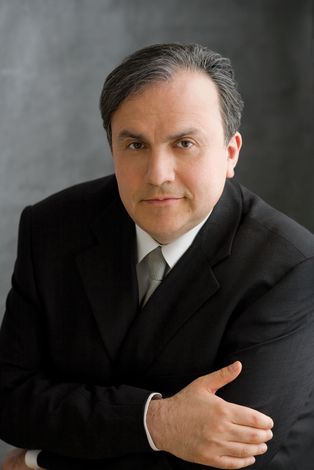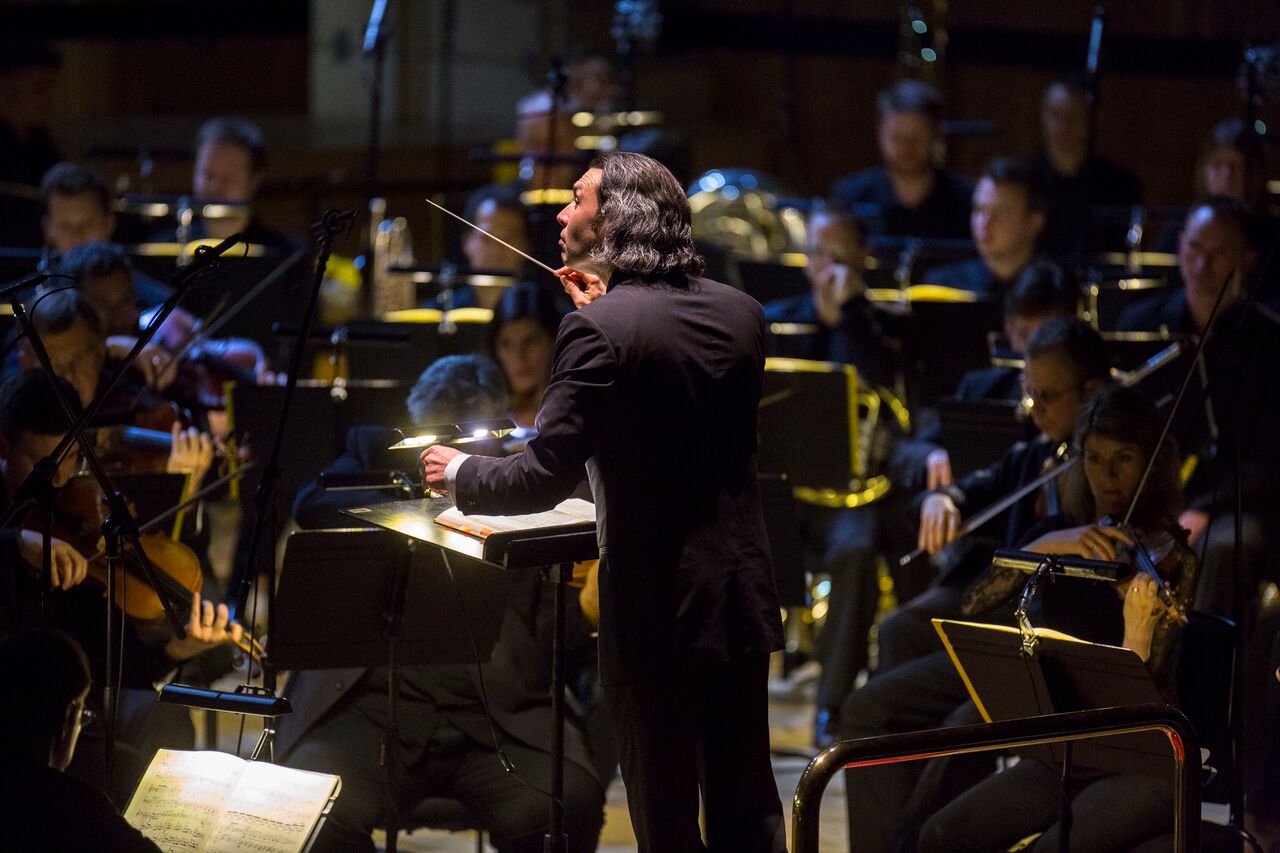Vladimir Jurowski is always a conductor for making connections, so one wonders why Brahms's Second Piano Concerto wasn't the first-half choice in this programme from the start (the advertised original had been the much stormier No 1). The sleight-of-hand wit of its effervescent finale came not only as the usual surprise after the philosophical reflections of its first three movements, but also made a bridge to two great portraits of very different wags, Strauss's Till Eulenspiegel and Elgar's Falstaff.
It seemed almost too good to be true that Yefim Bronfman shared Jurowski's balancing act between well-judged weight and suave, immaculately prepared lightness of touch. The feminine ending of his opening response was just as important as David Pyatt's perfect horn solo; in the Andante, he made chamber music when finally allowed to join the unsentimental but exquisite cello solo of another London Philharmonic Orchestra star player, Kristina Blaumane. But how effectively he can thunder when he needs to, capping a super-rich bass with a crystalline top-of-the-range.
 Ultimately, though, this is a symphony-concerto, and without the elegance and forward movement Jurowski, the most singular Brahms interpreter around right now, brought to the beautifully-crafted table, it would not have created so singular an impression. Bronfman (pictured right by Dario Acosta) took the most internalised, cooling centre-stage with a brief and simply perfect encore, Scarlatti's Sonata in C minor, K11, capitalising on the trills which had been so impressive in the giant work; but after the interval. Then it was over to the orchestra to make light of what had clearly been phenomenal preparation in the two symphonic poems.
Ultimately, though, this is a symphony-concerto, and without the elegance and forward movement Jurowski, the most singular Brahms interpreter around right now, brought to the beautifully-crafted table, it would not have created so singular an impression. Bronfman (pictured right by Dario Acosta) took the most internalised, cooling centre-stage with a brief and simply perfect encore, Scarlatti's Sonata in C minor, K11, capitalising on the trills which had been so impressive in the giant work; but after the interval. Then it was over to the orchestra to make light of what had clearly been phenomenal preparation in the two symphonic poems.
Medieval prankster Till, kicking off with a once-upon-a-time dreaminess and another, quite different horn solo, moved from one with incredible deftness, despite Jurowski's upping of the graphic effects department by having three percussionists wield rattles for the panic in the market-place and military drums for the unrepentant sinner's trial before execution.
Elgar's Falstaff is a more introspective figure of fun, partly the self-portrait of a bipolar composer wailing "I grow old", for all the fun of the incidents faithfully derived from Henry IV Parts One and Two. If Strauss partly took the comic side of his Bavarian nature from north German Brahms - the early Burleske for piano and orchestra clearly derives from the example of the Second Concerto's finale - Elgar's decision to compose a fully-fledged "Symphonic Study" derives from Strauss's example (above all, perhaps, his masterly Don Quixote). The LPO's decision to follow the Philharmonia's cue and pinpoint the incidents in both works with supertitle descriptions is, I think, a good one, though it needed a bit of fine-tuning and we could have done with more of the Shakespeare quotations Elgar used in the incomparable piece of perceptive criticism that was his long programme-note for the work.  Nevertheless focusing on the storytelling may blind us to many of Elgar's superlative transformations of his excellent material for the fat knight and his beloved Prince Hal (the noble mode with a twist). Jurowski's seemingly effortless rubato (the conductor and the LPO pictured above by Simon Jay Price), the freedom in the phrasing, brought air and the occasional surprise - as in the Brahms, the introspective quality, most moving here in the divided cellos and violas as Falstaff dozes in Justice Shallow's Gloucestershire orchard, returning for the restrained death scene - as well as spine-tingling emotion for the coronation-ceremony twist on Pomp and Circumstance. Above all, it's heartening that another great conductor recognises Elgar's world-class genius in this fabulous score, and could encourage his orchestra to do it full justice.
Nevertheless focusing on the storytelling may blind us to many of Elgar's superlative transformations of his excellent material for the fat knight and his beloved Prince Hal (the noble mode with a twist). Jurowski's seemingly effortless rubato (the conductor and the LPO pictured above by Simon Jay Price), the freedom in the phrasing, brought air and the occasional surprise - as in the Brahms, the introspective quality, most moving here in the divided cellos and violas as Falstaff dozes in Justice Shallow's Gloucestershire orchard, returning for the restrained death scene - as well as spine-tingling emotion for the coronation-ceremony twist on Pomp and Circumstance. Above all, it's heartening that another great conductor recognises Elgar's world-class genius in this fabulous score, and could encourage his orchestra to do it full justice.














Add comment